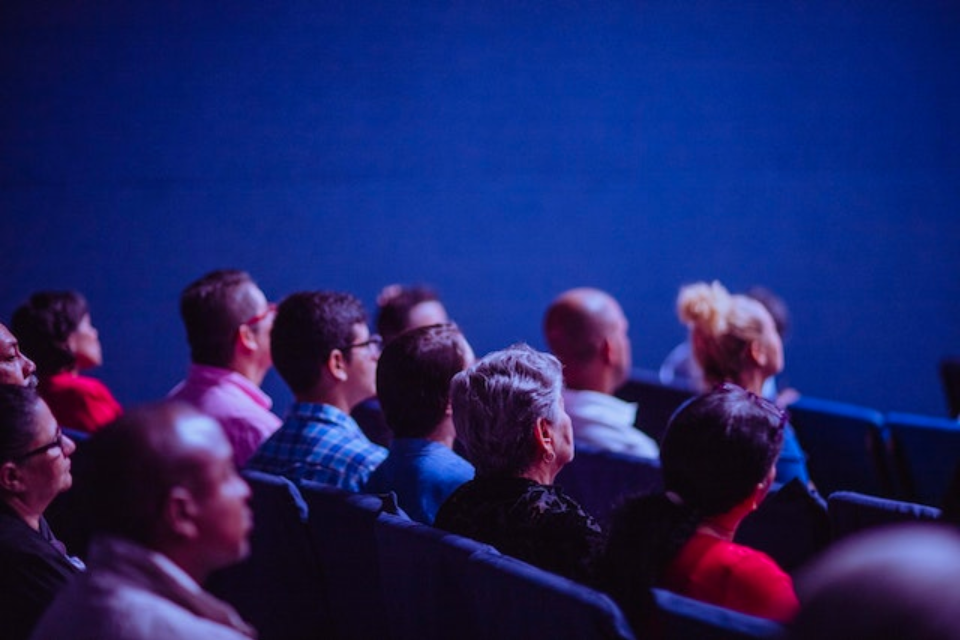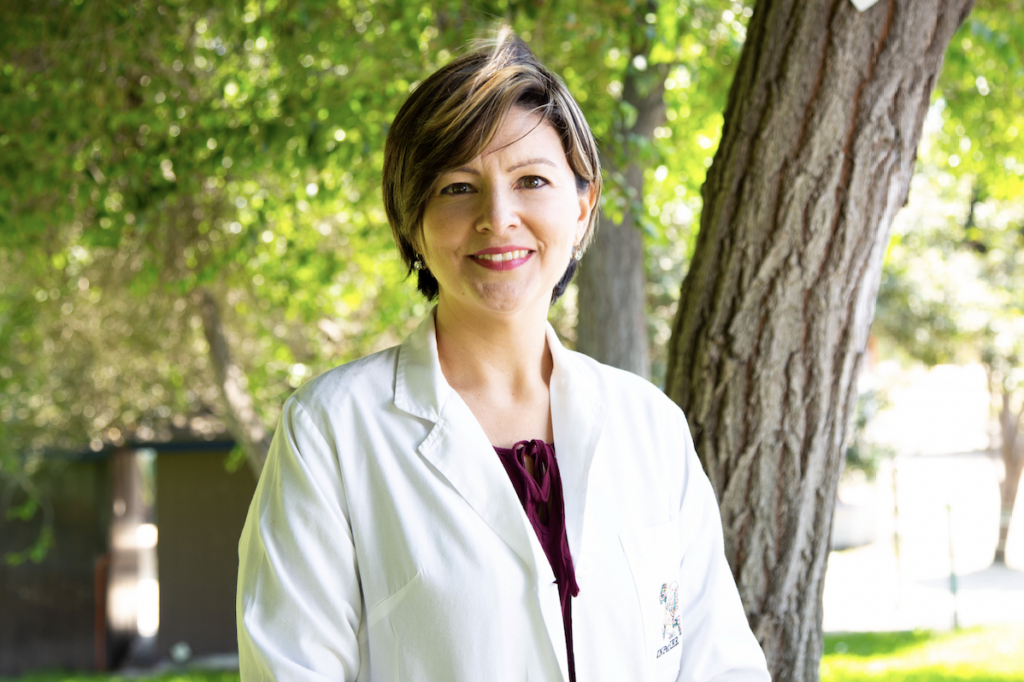Chronic illnesses, such as diabetes, cancer, pancreatitis, cystic fibrosis, arthritis, and heart disease, are widespread in the United States, affecting 6 in 10 adults according to the CDC. Living with a chronic illness can be a difficult, overwhelming, and isolating experience; often, people with a chronic disease feel like they are the only ones going through it.
With the right support, people who receive a life-changing diagnosis can not just cope but even thrive. Connecting with others who can empathize and offer support can make a world of difference in how a person navigates their journey with a chronic illness.
TED Talks are a valuable resource for anyone seeking inspiration, guidance, and a sense of community. These talks provide useful and inspiring insights into managing chronic illnesses, including coping strategies, self-care, advocacy, and the science behind our minds and bodies. For those new to TED Talks, they are short (6–18 minutes) talks by excellent speakers who share their personal experiences.
In this blog, we have compiled a list of the 8 best TED Talks for people living with chronic illnesses. These talks cover a wide range of topics and offer insights and tools to help individuals navigate the challenges of living with a chronic illness. Whether you are seeking inspiration, guidance, or simply a sense of community, these talks are sure to provide you with valuable strategies to help you live your best life with your condition.
Remember, you are not alone in your journey, and there are resources available to help you along the way. We hope that these TED Talks will help you feel empowered, informed, and supported as you navigate life with a chronic illness.
1. A broken body isn’t a broken person
“I knew for certain that, although my body might be limited, it was my spirit that was unstoppable. The philosopher Lao Tzu once said, ‘When you let go of what you are, you become what you might be.’ I now know that it wasn’t until I let go of who I thought I was that I was able to create a completely new life. It wasn’t until I let go of the life I thought I should have, that I was able to embrace the life that was waiting for me.”
In the TED Talk “A broken body isn’t a broken person,” Janine Shepherd shares her remarkable story of overcoming physical and emotional challenges after a devastating accident left her with serious injuries. Through her own experiences, she explores the power of the human spirit to overcome adversity and the importance of finding new ways to define oneself in the face of unexpected challenges. Her talk is an inspiring reminder that our bodies may change, but our spirits can remain unbroken.
2. What chronic pain has taught me about resilience
“No matter how out of control your life might seem, you will always have control over your actions right now. So, do one thing and take responsibility of the outcomes, so that you can steer your life in a positive direction.”
In this TED Talk, “What chronic pain has taught me about resilience,” Trung Ngo draws on his insights from treating people with complex, chronic pain at Mount Sinai Hospital, and proposes an interdisciplinary solution to address chronic pain and pain management. Ngo emphasizes the question, “when faced with adversity, why do some people become stronger while others break down?” His talk offers a valuable perspective for individuals living with chronic pain, so they may build resilience and lead fulfilling lives.
Please note that this TED Talk briefly mentions suicide.
3. Disability, not invisibility: My experience with chronic illness
“I’m not here to say how grateful I am I got sick. It’s been almost three years, and I still grieve for what I once had. The body that could do anything and everything. No, I’m not grateful for my illness. But, I would by lying if I said I wasn’t grateful for the opportunities it’s given me. The opportunities of a lifetime.”
Vicky Potter’s TED Talk, “Disability, not invisibility: My experience with chronic illness,” is a powerful account of her journey with POTS and how it has compelled her to become an advocate for disability rights and accessibility. Through her personal story and statistics, Potter challenges the audience to examine their own prejudices towards disabled and sick people, and offers validation to those who share her struggles in navigating a world designed for able-bodied individuals. Her talk inspires viewers to rethink their perceptions and actively work towards creating a more inclusive society.
4. What happens when you have a disease doctors can’t diagnose
“Living with this illness has taught me that science and medicine are profoundly human endeavors. Doctors, scientists, and policymakers are not immune to the same biases that affect all of us.”
Jennifer Brea’s TED Talk, “What happens when you have a disease doctors can’t diagnose” is a moving and personal account of her experience with myalgic encephalomyelitis (ME), also known as chronic fatigue syndrome. Brea shares the challenges she faced in finding a diagnosis and treatment for her illness, as well as the stigmas associated with invisible disabilities, particularly when it comes to women. Her talk sheds light on the need for greater awareness and funding for research into diseases that are difficult to diagnose and the importance of listening to patients’ experiences and perspectives.
Please note that this TED Talk briefly mentions suicide.
5. Patient-centered care systems: A view from chronic illness
“When doctors give patients an ‘A’, they choose to line up with the patient to combat their disease, rather than lining up with the standards against the patient. They’re inviting them as colleagues, rather than speaking to them from a position of power.”
In her TED Talk “Patient-centered care systems: A view from chronic illness,” Candy Gan challenges the traditional approach to healthcare. Gan emphasizes the need for a shift in the doctor-patient relationship, where patients are empowered to take an active role in their own care and treatment. This shift involves thinking of the patient as a whole person, who is an equal partner in the healthcare process. Gan’s talk is a call to action for healthcare professionals to embrace patient-centered care and for patients to assert their agency in their own care.
6. My life started when they said it was over
“After breaking down crying for days, weeks, some days, not even making it out of bed, I made a decision for myself. I could either continue on this dark and hopeless road, leading to my inevitable death. Or, I could choose to live with less fear and darkness, and more love and light while I was still here. I chose the latter.”
Elin Kjos’ TED Talk, “My life started when they said it was over,” is a powerful testimony to the resilience of the human spirit. In the face of a diagnosis of fatal lung cancer, Kjos refused to give up and instead found a new purpose in life. She chronicles her journey of hope and healing and emphasizes the importance of living each day to the fullest, no matter the circumstances. She speaks about the role that therapy and support from loved ones played in her journey, and emphasizes the need for others to prioritize their mental health alongside their physical health. Through her story, Kjos inspires viewers to live life with purpose and meaning, to embrace the present moment, and to never give up hope, even in the darkest of times.
7. Don’t wait to be healed to start serving humanity
“I do these talks to make a point that you can have a painful life. You can suffer. You can experience what it’s like to feel like a human being, all those messy and gross emotions. And yet, you can make a life for yourself that you are very very proud of.”
In her Ted Talk, “Don’t wait to be healed to start serving humanity,” Claire Wineland shares her personal story of living with cystic fibrosis and how it led her to a greater understanding of the value of human connection, service, and gratitude. Despite facing countless health challenges throughout her life, Wineland has dedicated herself to spreading joy and positivity through her work. Wineland’s message is a powerful one: we don’t have to wait until we are “healed” to start making a difference in the world. In fact, our struggles and challenges can be the very thing that gives us the strength and perspective to help others and make a life we can be proud of.
8. Embracing your expiry date
“It might surprise some of you to hear this, but I can honestly stand up here today and say that, without a doubt, cystic fibrosis is one of the best things that has ever happened to me. No longer does that sentence, ‘cystic fibrosis is a fatal genetic disease,’ carry the weight of fear, rejection, anger. Instead, it’s become this powerful source of inspiration; it drives me.”
In his TED Talk, Jeremie Saunders advocates for embracing one’s own expiry date as a means of living a fulfilling life. Rather than focusing on the inevitable end, he encourages people to savor every moment and make the most of their time. Diagnosed with cystic fibrosis, Saunders shares how this perspective has shaped his outlook on death and life. He hopes to inspire others to follow suit, regardless of their health status, and encourages open dialogue to shift the perspective around chronic and terminal illnesses. Ultimately, Saunders believes that by embracing mortality, people can unlock the potential for a more meaningful existence.

